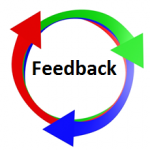There is a range of questionnaires and diagnostics here to support, guide and develop your learning. Whether you want to assess and develop your personal impact or achieve results through others, you’ll find useful resources to support your progress and development.

Your Learning Preferences – Honey and Mumford Learning Styles
As part of your preparation for learning you may want to consider how you learn best and what your preferred style and approach to learning might be.

Team Health Check Diagnostic
How well does your team perform? Complete this questionnaire to find out.

Addressing Performance Issues – a Diagnostic
Misdiagnosis of a performance problem can have serious consequences. Should you wish to lessen the likelihood of a misdiagnosis and to develop your ability to determine correctly the cause of a problem, we provide a checklist to use when such a performance problem arises. The checklist addresses four of the most common causes of problem performance and will help you determine the most appropriate course of action.

Effective Feedback
If you want to give feedback that is positive, keeps others on track for successful performance and leaves them feeling motivated to tackle future challenges you can use the following two types of feedback: Motivational Feedback and Developmental Feedback

Reframing – a Positive Thinking technique
Is your self-talk (that voice in the head) performance limiting or performance enhancing? It can determine how we experience any event, which in turn affects how we feel about the situation and can shape our subsequent actions.
We can trip ourselves up by focussing on the negatives and being highly self-critical. And we can do the same for others when we use overly critical or negative terms.
